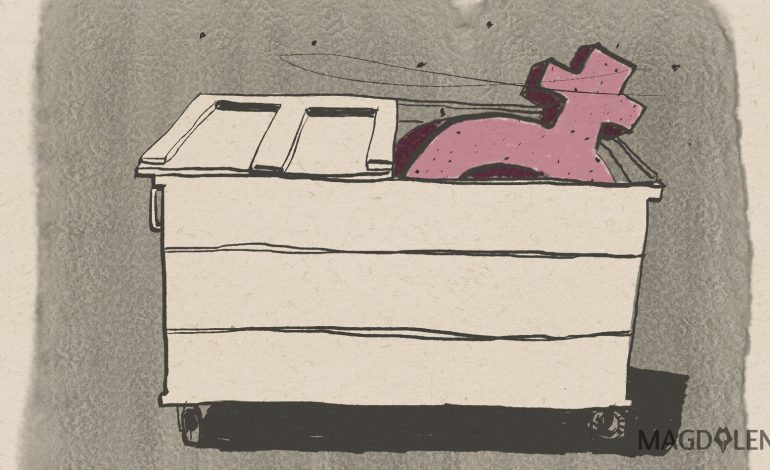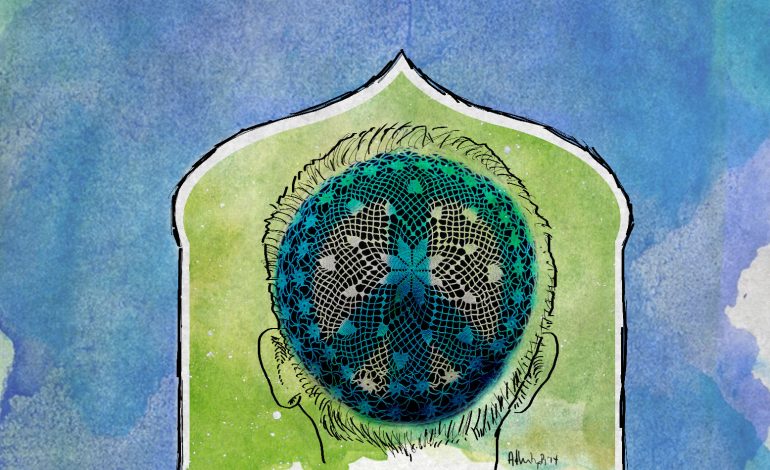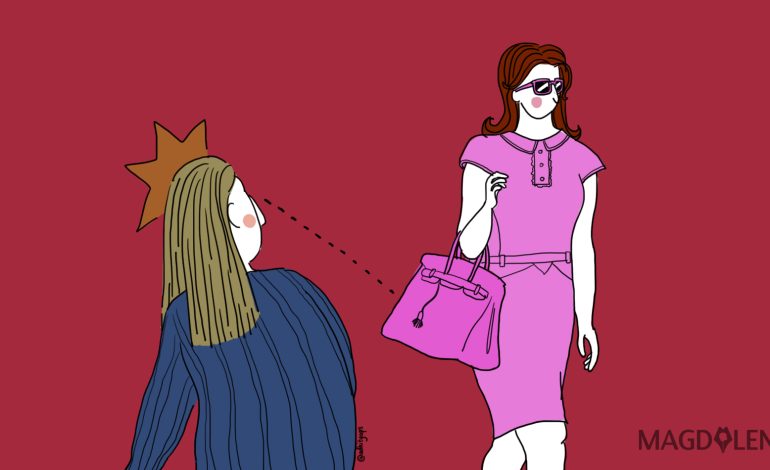Is Asia a Refuge for Patriarchy?

About a decade ago, my sister and I were watching a Channel News Asia’s story on Asian pickup artists (PUAs), in which men were instructed to approach and talk to random women in a Tokyo underground mall and on Singapore’s Orchard Road. The documentary presented the pickup artists in positive light, and I watched the documentary in excitement while my sister was cringing.
Years later I suspected that the Singaporean government considered enlisting Asian pickup artists to help boosting the nation’s marriage and birth rates. But, of course, nothing was found to support this theory. In any case, in 2014 Singapore banned the entry of Swiss PUA Julien Blanc into the island, following his “White male fucks Asian women in Tokyo” video.
Pickup artists were sanitized and made mainstream through two fictional characters, Will Smith as a dating consultant in Hitch (2005) and Barney Stinson in How I Met Your Mother, whose catchphrases (including “Bro,”) and larger-than-life character influenced global pop culture in early 2010s. I wanted to follow the wisdom of both characters, while repeatedly reading Neil Strauss’ self-help book The Rules of the Game for years. Luckily, the eye-popping price prevented me from joining a PUA “boot camp”, whether it was in Jakarta or Hong Kong. It gave me enough time to realize that PUAs are creeps, whether they are white or Asians.
Indonesians talked about Pickup Artists again recently, following blog entries and social media posts condemning feminism written by a local pickup artist, sorry, a local dating coach. Soon those posts ignited online brawl between feminists and his supporters.
Like elsewhere, anti-feminists in Indonesia consist of both religious and atheist (or at least non-religious) people. For the religious, feminism upsets the natural order, encourages women to commit sins, and is overall a blasphemy. For the atheists and the liberals, feminism is annoying, self-righteous, and taking the fun out of flirting and entertainment (both with #MeToo).
Meanwhile, the world was upset with the vlogger Logan Paul, who showed a corpse in Mount Fuji’s Aokigahara Forest in his “Tokyo Adventures” series. The problem with this series is beyond his exploitation of someone’s suicide, but throughout the series, he constantly disturbed Japanese people at work and making fun of them, relying on their non-confrontational custom and white man’s sense of superiority.
When Japanese-American vlogger Reina Scully called out Paul, she received racist and misogynistic abuses from his followers, proving that Paul and his fans do not respect Japanese culture and people at all. Like Blanc before him, Paul and his fans believe that Japan welcomed their antics and Japanese people (and Asian people by large) are by default their inferiors.
Some Indonesians discussing Paul drew parallel between him and “David Bond”, an American who moves through Southeast Asian countries while selling his stories & videos of hooking up with local women. Bond, Blanc, and Paul regularly made fun of Asian people and culture in their videos, and repeatedly demonstrating to their viewers that white men could get away doing anything in Asia.
Since the unexpected victory of Donald Trump in winter 2016, journalists have probed the link between pickup artists and men’s rights activists, who terrorized women in the media in mid-2010s. Now they have even evolved into white supremacists, and many of them are fetishizing Asian women, especially East Asian – Chinese, Japanese, and Korean – women. For them, East Asian women – stereotyped to be feminine, obedient, and fair-skinned – are the opposite of white women, who supposedly have all become feminists.
This point raised two questions from some Asian women. First, have not those people heard of Asian feminists, who have fought white supremacy and the patriarchy over the last century? Sadly, when stepping into the dance floor or the bar, those men hardly met local women who told them where to shove it.
Second, some women said that the objectification of women in Asian institutions and nightlife is not solely the fault of white men with their colonial mentality, but also the fault of Asian men with their sexism. After all, Asian men are the main consumers of vice industries in Asia. This is also true, and none of the two monsters is preferable to the other. It is possible to condemn Asian men for their sexism, and white men for their racist objectification of Asia.
The backlash against #MeToo intensifies even in the West, from columnists in American publications saying it’s gone too far, to French cultural icons arguing that it kills romance. Even some Indonesian progressives questioned its relevance for Indonesia, and asked if American women have become overdramatic, following the allegation that pro-feminism comedian Aziz Ansari disrespected his date’s consent and boundary.
Compared to the West, Asia is still a very patriarchal place. Japan and South Korea regularly stand at the bottom of OECD’s tables on earning for working women, on maternal leave allowance, and even on shares of women with bachelor degrees – despite the world-class quality of secondary education in both countries. If that is what happening in Asia’s finest countries, what chance do others have?
In fact, Indonesians constantly spread the homophobia scare throughout social media, to the extent that some churches have created boot camps for married men and women, with materials similar to PUA theories. Many gay people have expressed their disgust with the heteronormality of PUA advocacy, and this is exactly what makes it suitable for church groups. Men are told to “man up”, while women are told to be attractive and to complement their husbands.
More people from different backgrounds understand and support feminism, and more people agree that activism needs the perspective of feminism. The complaints that “feminism has gone too far,” signals that feminism is making visible change. Sadly, although some things have changed compared to a generation ago, Asia is still a haven for patriarchy.
Read Mario’s contemplation on the last five years of his life and follow @MarioRustan on Twitter.






















